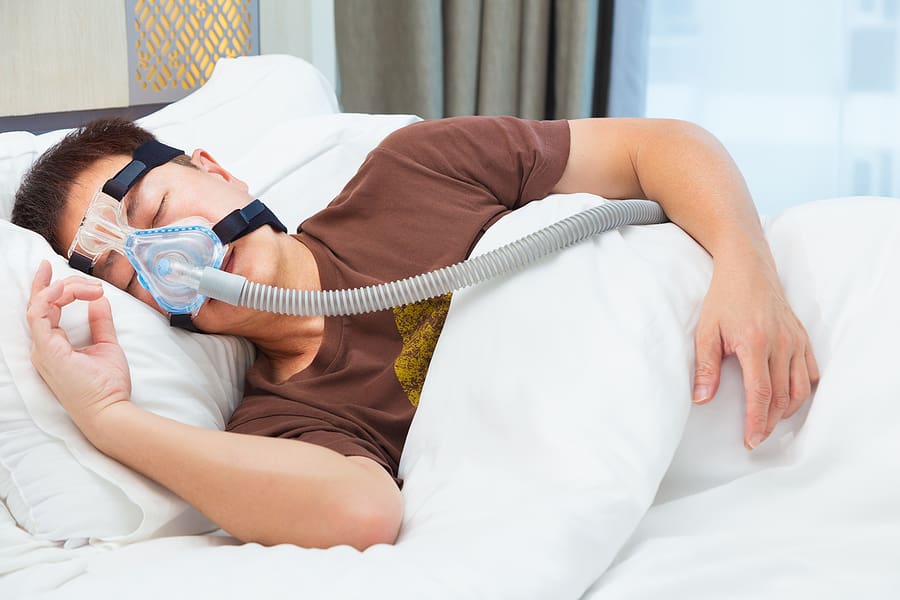Veterans can sustain injuries or develop illnesses from defective products, including those that are mass tort issues impacting individuals across the country.
Summary
- Like civilians, military personnel are at risk of suffering harm in mass tort cases, which may result in or exacerbate service-related disabilities.
- Current mass torts affecting veterans include AFFF firefighting foam, medical devices like CPAP breathing machines and Bard PowerPorts, and medications such as Ozempic and Suboxone.
- Veterans who have been impacted by recent mass torts are vulnerable to a range of medical issues, including cancer, digestive problems, organ damage, tooth decay, and respiratory conditions.
- VA disability benefits may be available for veterans who sustained service-connected disabilities as the result of a defective product or other mass tort issue.
Mass tort cases imply a group of people were hurt by the negligence of another party. There are several mass tort issues that are currently affecting swaths of veterans. In many cases, vets were harmed by the medical devices or medications that were used to treat their service-related disabilities.
Some veterans have also developed health issues after handling faulty equipment while serving in the military. At VetLaw, we understand the pressures and challenges that military veterans face as they seek VA disability benefits. We are ready to help you address those issues head-on.
Our veterans disability claims lawyers are well-versed in how to deal with the VA, the defective products that are linked to service-related disabilities, and how to build a solid case.
If you have questions about any of the mass torts that affect veterans, don’t hesitate to give us a call at (855) 500-4672 or fill out a contact form today to schedule a free consultation.
Veterans May Be More Vulnerable to Injuries in Mass Tort Cases
Given the rates of disability among former military service members, veterans may be at a greater risk of harm from mass torts involving defective medical devices or drugs. According to a U.S. Census Bureau report, veterans have a higher rate of disability as compared to non-veterans of the same age.
Therefore, it logically follows that as a group, veterans are more likely to require medical care, which may include the use of dangerous drugs and malfunctioning medical devices.
Exposure to these flawed products can cause them to develop secondary conditions or experience worsening symptoms. Additionally, many veterans interact with toxic substances during the course of their military service.
Oftentimes, these harmful chemicals are found in their equipment, as in the case of AFFF firefighting foam, or in their work environment, as the military relies on them to maintain weapons and facilities.
AFFF Firefighting Foam
Given that AFFF has been the go-to fire suppressant for military training and emergency response purposes, exposure has been considerable. Veterans who served as firefighters or worked on airfields where AFFF was deployed tend to have the greatest exposure to the toxins in Aqueous Film-Forming Foam.
Military personnel with consistent exposure to AFFF firefighting foam often accumulate per- and polyfluoroalkyl substances (PFAS) in their systems. The human body struggles to break down PFAS, which puts stress on the kidneys and liver.
Chemicals like PFAS can also interfere with typical cell growth, as well as other processes within the body. Veterans who had regular contact with AFFF are at risk of developing organ damage and cancer as a result of toxin buildup.
These illnesses are service-related disabilities, and resulting health issues can qualify as Secondary Conditions. For example, a vet could file a VA disability claim for cancer and a mental condition claim for depression related to their cancer.
CPAP Breathing Machines
Sleep disorders, including sleep apnea, are common among military veterans. Many develop sleep apnea related to other medical conditions, such as Type II diabetes or chronic respiratory issues. Significant exposure to chemical toxins is often the original culprit.
Military service can increase an individual’s risk for sleep apnea. Many vets with sleep apnea need a CPAP breathing machine to avoid disrupted sleep. Several models of Philips defective CPAP breathing machines used foam that couldn’t withstand normal wear-and-tear or cleaning.
As the foam degraded, it would get sucked into the flow of oxygen regulated by the machine. That caused the user to inhale the foam. CPAP users have developed COPD, lung cancer, and other serious respiratory problems from the toxic foam. Vets make up a notable percentage of CPAP users.
Ozempic Injections
Ozempic is a new drug designed for Type II diabetics. Doctors may also prescribe it for patients struggling with obesity. Veterans who were exposed to Agent Orange are at risk for service-related diabetes, and vets who experienced PFAS exposure through AFFF may also be vulnerable to Type II diabetes.
Obesity is more likely to be a Secondary Condition in veterans, such as those who suffered a service-related injury that impaired their mobility. Veterans who take Ozempic may develop stomach paralysis from the defective drug.
Ozempic-related stomach paralysis often requires urgent medical attention, and potentially hospitalization and corrective surgery. Veterans may be able to pursue compensation for gastrointestinal issues in mass torts if they were prescribed Ozempic to treat a condition like Type II diabetes and suffered harm.
Bard PowerPort Catheter Implants
The VA’s list of presumptive service-related conditions includes several chronic health problems. Oftentimes, ongoing medical issues, such as cancer, require healthcare providers to frequently administer injections.
Bard PowerPorts are supposed to minimize the need for direct needle sticks. The medical device is implanted under the patient’s skin with a tube that connects the port to their vascular system.
Bard PowerPorts have been malfunctioning; the polyurethane tubing is cracking and even shedding shards. Patients have developed life-threatening infections when the tubing surface is no longer smooth.
Additionally, the pieces of the PowerPort can travel, causing blood clots and slicing blood vessels. Among the major mass torts that affect veterans, the Bard PowerPort cases are serious, as these patients are usually already suffering from devastating injuries or illnesses.
Suboxone Sublingual Film
Medical providers may prescribe opioids to veterans for pain management for a number of service-related disabilities. Anything from a traumatic amputation to cancer to a spinal cord injury could potentially warrant opioids, but some veterans develop an addiction to these drugs.
Suboxone is a buprenorphine-naloxone medication that offers limited pain relief and helps ease the process of withdrawal. However, Suboxone has recently become one of the many mass torts that affect veterans.
Users have complained of rapid tooth decay caused by Suboxone sublingual films. The strips dry out the user’s mouth, leading the tooth enamel to disintegrate. As a result, many veterans using Suboxone have suffered extensive dental damage, including losing teeth.
Don’t Wait to Contact VetLaw if Your Service Related Disability is the Result of a Mass Tort Issue
Mass torts that affect veterans often require additional investigation to establish a medical nexus in a VA disability appeal. At VetLaw, we have the skills and resources to provide that level of support.
Our team of VA-accredited disability claims lawyers has an extensive and varied background in representing veterans in the appeals process to secure disability benefits.
You can proceed with the knowledge that our team will have your back with the VA from start to finish. We encourage you to give us a call at (855) 500-4672 or fill out a contact form today.
Our team will help you schedule a free consultation to evaluate your case and offer advice on how to proceed. We’ll take your concerns seriously, carefully construct your appeal, and tirelessly advocate for you to receive VA disability benefits.
Frequently Asked Questions
Do VA disability benefits automatically cover mass torts that affect veterans?
Illnesses and injuries caused by defective products are only eligible for VA benefits if they are service-related. So, a mental or physical condition connected to PFAS exposure from using AFFF to fight fires in the military would qualify.
However, if you were harmed by a flawed medical device or defective drug that your provider was using to treat your service-related injury, that injury would likely not be eligible for VA disability benefits. In that event, you should consider seeking compensation in a mass tort claim.
What types of compensation can veterans recover in mass tort claims?
In most of the mass torts that affect veterans, manufacturer negligence is the central issue, making these product liability claims. Product liability claims fall under the scope of personal injury law.
Personal injury claims restore the injured party to the position they were in before the negligent party’s actions harmed them. Therefore, the injured party can pursue compensation for economic and non-economic damages resulting from the manufacturer’s negligence.
If you can easily locate the market value of something or you have a receipt/bill for it, then that loss likely counts as an economic damage. Examples of economic damages include medical expenses, lost wages, transportation costs, and other financial burdens resulting from your illness or injury.
On the subjective side of compensatory damages, non-economic damages cover the intangible toll that your injuries have taken on you. This can include pain and suffering, mental anguish, loss of consortium, and more.
What is a service connected disability?
Regardless of what branch you served in, the basis of any VA disability claim is a service-related disability. To prove you qualify for veteran disability benefits, you need to show that you have a medical condition diagnosed by a healthcare professional that is the result of your military service.
Alternatively, you can prove you had a pre-existing condition that became worse due to your service. With this type of claim, you need to show that your symptoms became more intense or frequent than they otherwise would have if you hadn’t served in the military.
Does Camp Lejeune’s toxic water contamination qualify as a mass tort issue?
The Camp Lejeune cases are a bit more complicated. Military veterans and their families were harmed by how the water contamination was handled, rather than a specific product like a defective drug. However, it is still a mass tort.
As part of the PACT Act, Congress established a way for military families to pursue compensation for damages in court. Additionally, military personnel can file Camp Lejeune toxic water claims for VA disability benefits.
Have manufacturers recalled any of the defective products involved in the major mass torts that affect veterans?
The military is in the process of banning AFFF firefighting foam. Manufacturers related to AFFF production, like 3M, are also working to eliminate PFAS, but they have not formally recalled the substance. The primary manufacturer of defective CPAP machines did issue recalls for certain models that contained the faulty foam.
Novo Nordisk, the manufacturer of Ozempic, has yet to recall its product. The same is true of Indivior, the manufacturer of Suboxone. Bard, the maker of Bard PowerPort catheters issued a recall for a different defect a few years ago. However, it has not conceded the design flaw in the devices’ catheter tubing.







